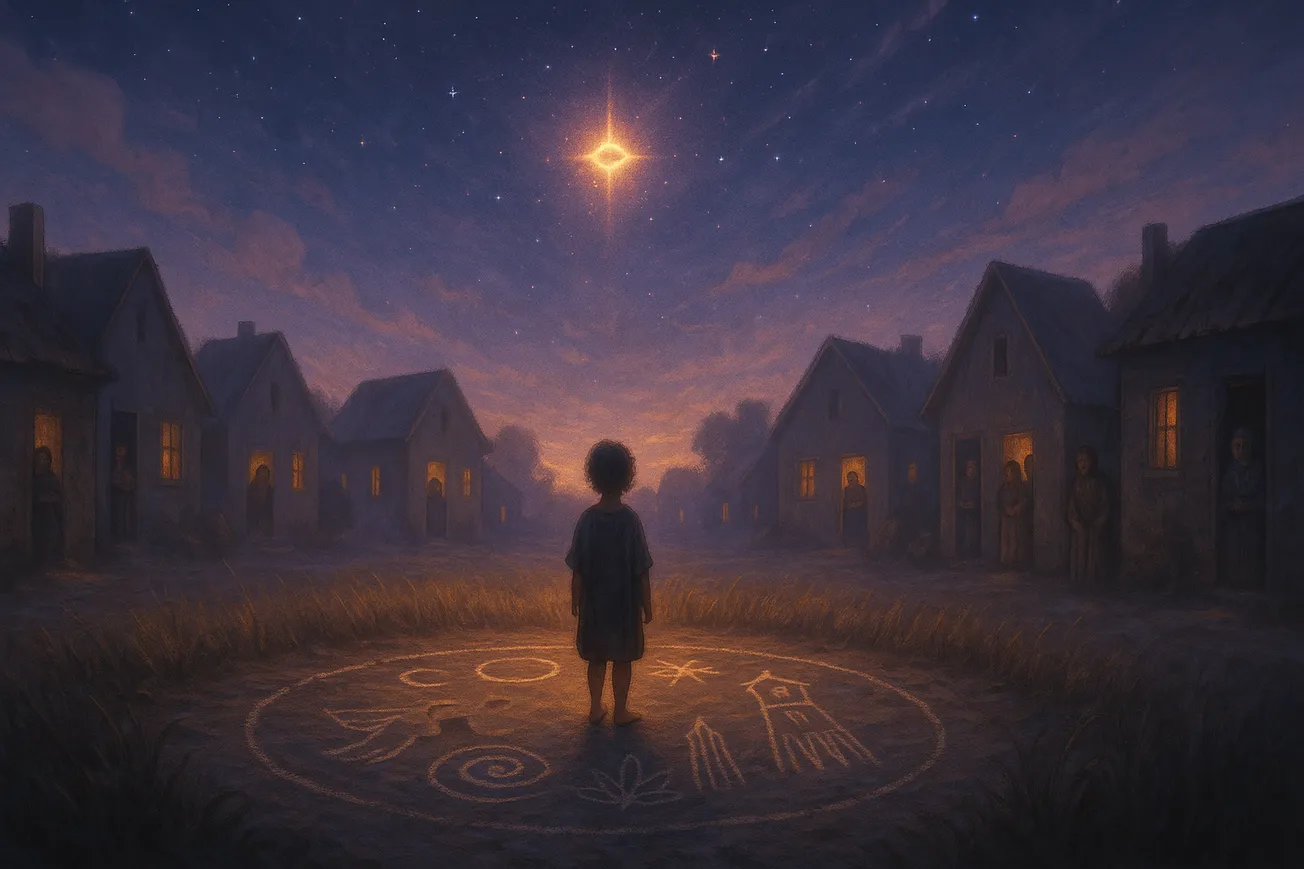🌈 The Fractal Story Engine | Society & Future | (8) SF-002-D2
The child was born without a name.
In the world that came after Ilya, no one named anything. Not places. Not people. Not the shapes of thoughts. Language remained, but it moved slowly now. It moved like water in a still basin, untouched by metaphor or deceit. To speak was to name only what was. No more, no less.
The villagers called the child “the quiet one,” though not aloud. No words marked her, only glances. She walked barefoot, hair like riverweed, and eyes that held the stillness of wells.
But then she began to dream.
First, of a bird that spoke in colors no one had ever seen.
Then, of a staircase that grew upward every time someone asked it a question.
Then, of a city that wept when its citizens died. Its buildings sighed and shed petals made of dust and stone.
She did not tell anyone these dreams. She drew them, finger tracing loops in soil or ash. When others looked, they felt a shift. The old clarity bent, just slightly. Something unnameable stirred.
One morning, she woke to find her dream had bloomed in someone else's mouth.
A boy by the river was whispering of the bird with the impossible feathers. He could not explain why he knew. Only that he did. By dusk, the baker spoke of the weeping city. A woman in her final days asked whether the staircase might reach her husband.
The village changed. Not visibly. But in the way people lingered longer in doorways. In the way questions began to grow teeth.
They feared her, of course.
They watched her from the corners of their eyes as if she might unmake their knowing. Some whispered of the days before the Forgetting, when words had twisted like vines and truth had been something slippery. They remembered the fragment. The woman who vanished into silence. They remembered the wound that had once called itself language.
But others began to paint.
To sing.
To wonder.
They carved shapes with no use. They told stories they knew were untrue just to feel the curve of them in their mouths. They called it “dreamsaying,” and it was forbidden, though no one knew who forbade it.
The child never spoke of her dreams. She no longer needed to.
The dreaming had passed from her like pollen.
It seeded the corners of thought no word had reached in a generation.
One day, a traveler arrived.
He wore a robe without color, face bare, voice still. He watched the villagers quietly. Then he approached the child.
“What is your purpose?” he asked, in the old tongue.
She looked at him for a long time. Then she smiled. Not from joy, but from recognition.
“To remember the lie that saves,” she said.
It was the first sentence with a curve in it.
The traveler wept. Not for her, but for the world she had opened.
That night, a second dream bloomed.
A field of mouths opening beneath a sky of ink, each speaking a different star into being.
By morning, no one could say what the stars were anymore.
But they knew how they felt.
And the feeling was enough to begin again.

